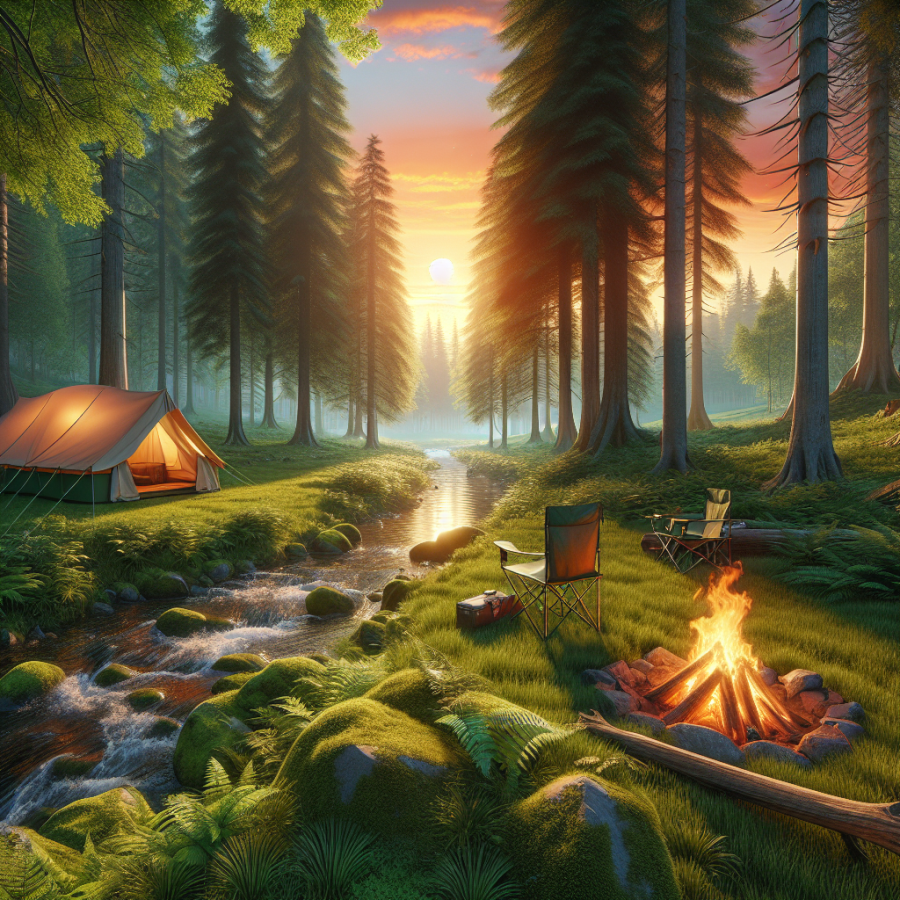Proven Camping Tips and Tricks: Maximizing Your Outdoor Experience
Whether you're a first-time camper or a seasoned enthusiast, the sheer joy and tranquility of camping are undeniable. However, it takes a smart camper to turn a good trip into an unforgettable adventure. Here are some proven tips and tricks to help maximize your outdoor experience with safety and comfort in mind.
1. Effective Campsite Selection: Choosing the right campsite can make or break your camping experience. Find a site with enough shade, flat ground for tent setup, and close access to resources. It should be away from water bodies to avoid insects and offer a natural wind barrier.
2. Tent Setup: Familiarize yourself with your tent setup process before you leave home. Practice setting it up and tearing it down a few times. Once at your site, position your tent with regard to wind direction to prevent it from collapsing.
3. Campfire Safety: Always maintain a safe distance between your tent and fire pit. Douse the fire pit with water before leaving the site or going to bed. Keep a bucket of water or a fire extinguisher nearby at all times.
4. Food Storage: To prevent attracting uninvited wildlife to your campsite, store food and cooking equipment in airtight containers and suspend them from a tree branch at a safe height.
5. Layered Clothing: Temperatures can fluctuate dramatically from day to night, so ensure you pack for all weather conditions. Layering your clothes allows you to adjust to the altering temperatures easily.
6. Hydration and Nutrition: Regular replenishment of fluids and calories is essential, especially during physically demanding activities such as hiking. Carry plenty of water and high-energy foods.
7. Safety Essentials: Always bring a well-stocked first aid kit, a map, a compass, and a survival kit. Knowledge of basic first aid procedures can come in handy during emergencies.
8. Leave No Trace: This ethic encourages campers to respect the outdoors by maintaining cleanliness and minimizing impact on the environment. Always clean up your campsite before you leave.
9. Wildlife Interaction: Remember, you are a guest in the animals' home. Keep a safe distance from them, and never attempt to feed them.
10. Weather Watch: Keeping an eye on the weather forecast helps you prepare for sudden changes, be it a storm, rain or a heatwave. Packing for all potential weather conditions ensures you're ready for anything nature throws your way.
Remember, the best camper is a prepared camper.
Read also:
Tracing Back to the Origins: When was Golf Invented?
Unpacking the Essentials: What Every Camper Must Have
When it comes to enjoying the great outdoors, preparation is key. The right camping equipment can make or break your overall experience. With the right items in your pack, you’re set to enjoy the utmost safety, comfort, and convenience on your outdoor adventure. Although specific gear can vary depending on the nature of your trip, here are the essentials that every camper must have:
1. Tents, Tarps, and Sleeping Bags: One of the primary reasons we go camping is to connect with nature. However, as beautiful as it is, nature can also be unpredictable. It's essential to have a sturdy weatherproof tent to protect against natural elements such as rain, wind, and insects. Sleeping bags are also crucial for warmth and comfort. Including a tarp in your gear can provide additional protection, serving as extra ground cover or emergency shelter.
2. First Aid Kit: Safety should always be the primary concern when camping. Ensure you carry a fully stocked first aid kit with essentials like bandages, antiseptic wipes, tweezers, medical tape, pain relievers, and any necessary prescription medications.
3. Foods and Cooking Equipment: Camping offers the perfect opportunity to try some delicious outdoor cooking. Include portable stoves, pots, pans, utensils, and enough non-perishable food and drink for your trip. Don't forget the all-important marshmallows for that classic campfire experience.
4. Navigation Tools: Despite the technological revolution, traditional navigation tools are still part of camping essentials. Carry a compass, maps, or a GPS device to guide your exploration and help avoid getting lost.
5. Lights: Campsites get surprisingly dark once night falls. Always include multiple light sources in your packing list — lanterns, headlamps, or flashlights are must-haves. Don’t forget extra batteries!
6. Survival Tools: Equip yourself with essential survival tools like a swiss-army knife, whistle, multi-tool, and duct tape. Remember, a survival situation is better handled with the right tools.
7. Personal Hygiene Products: Maintaining good hygiene is necessary even when you’re in the great outdoors. Pack necessary personal hygiene products including portable camping toilets, biodegradable soap, toothpaste, toothbrush, and small trail towels.
8. Weather-Appropriate Clothing: Make sure you pack clothes according to the weather forecast and possible changes. Layers are always a good idea, so you can add or remove them according to the temperature variance.




